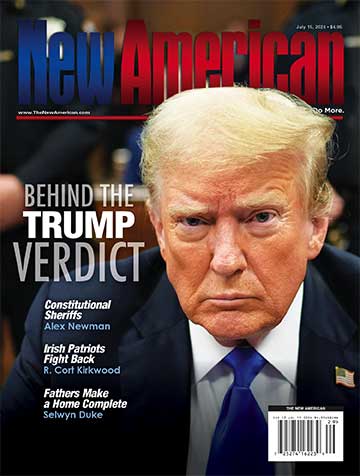
Americans are currently living in one of the most decisive moments in the nation’s history.
The recent expulsion of two Tennessee Democrats from the state Legislature for their role in an unauthorized “protest” that interrupted the Legislature’s proceedings has further opened the can of worms of retaliatory politics.
I say further because it was not Republicans who began the “tit for tat.” Democrats have long been on the road of political weaponization.
One need only look at Jan. 6 and its subsequent events — Democrats in Congress used that as the basis to impeach and attempt to remove President Donald Trump, and they used it as grounds to create the Jan. 6 subcommittee, which was nothing more than an instrument by which Democrats could investigate and intimidate their political opponents.
Democrats have had no qualms about using the power they wield to deprive their opponents of a voice in government. In Congress, while Nancy Pelosi (D-Calif.) held the speaker’s gavel, Democrats brazenly stripped outspoken Republicans like Reps. Marjorie Taylor Greene (Ga.) and Paul Gosar (Ariz.) of committee assignments — thus robbing their constituents of any meaningful representation in the important environment where policy is truly crafted.
Even now, President Trump is under indictment in what is clearly a politically motivated effort to keep him from successfully pursuing another term in office.
Within that context, Republicans are not only justified in taking similar measures to punish lawmakers who did what Democrats have so long accused Jan. 6 conservatives of doing; they are obliged to take this action — it would be wrong for them not to.
This is because, in warfare (and politics is a form of warfare, as the great Carl von Clausewitz famously wrote), one side has the moral justification and even imperative to take a given action once the other side has done it.
Not doing so out of a mistaken sense of chivalry would be self-defeating; it would be allowing the enemy to walk all over you. One cannot expect to win a struggle with his hands tied behind his back while the enemy has free rein to do whatever he wishes.
Of course, this “gentlemanly” style of politics is precisely the kind of mindset which has characterized the Republican Party for so long. Traditionally, at least in the modern era, Democrats have openly wielded power against their political enemies while Republicans are loath to do the same when they’re in power.
This is just one of the many reasons why the Republican Party and the conservative movement have so often lost to the Left.
But there has been an awakening, of sorts, among Republican officeholders — at least in some places. And the decision in Tennessee to expel the two problematic Democrats is a step in the right direction. Perhaps the GOP is finally understanding that this is a fight. Perhaps the party is opening its eyes to what it takes to win.
This raises a question: What does all this mean for the future of American politics?
Ultimately, it doesn’t matter who started it. Pandora’s box has been opened and there won’t be any closing it for some time. Political tensions are going to continue to grow at an ever-accelerating rate. We are living in a new era in which confrontational politics is the norm.
We can expect, for instance, for Democrats to retaliate in areas where they hold power. It likely won’t be long before we see reports of Democrat-run state legislatures or city councils expelling their Republican colleagues for one reason or another.
In a similar war, we’re likely to see Republican prosecutors, district attorneys, attorneys general, etc., going after prominent Democrats in the way Manhattan’s Alvin Bragg is doing to Trump.
Now, there are probably many Americans who lament this state of affairs. Indeed, we would all like to live in a peaceful political environment marked by mutual understanding and dialogue. That’s the concept that most Americans — particularly older generations — had of our Republic, and they cling to that memory longingly.
But in many ways, these tensions are a good thing. The deep problems confronting America today are not new developments; they have been fomenting for decades, with organizations like The John Birch Society long sounding the alarm like a voice in the wilderness. The problem was that that nostalgic notion of America as a peaceful political environment led many into a false sense of security.
Now that things are getting heated, at least it is waking people up to reality — often, people will not take action until they are pushed to do so by extreme situations.
This applies to cracking down on the criminals and leftists who have been sabotaging America from within. So often the people have called for investigations into and arrests of high-profile figures like the Clintons and Soros. But neither average voters nor politicians have had the stomach to actually follow through.
Now that things have gotten extreme, those inhibitions will gradually fade away. The indictment of Trump has been a huge wake-up call.
In short, these may be challenging and concerning times to live through. But great men and women — and that includes patriots — see such times not as a curse, but as an opportunity.




